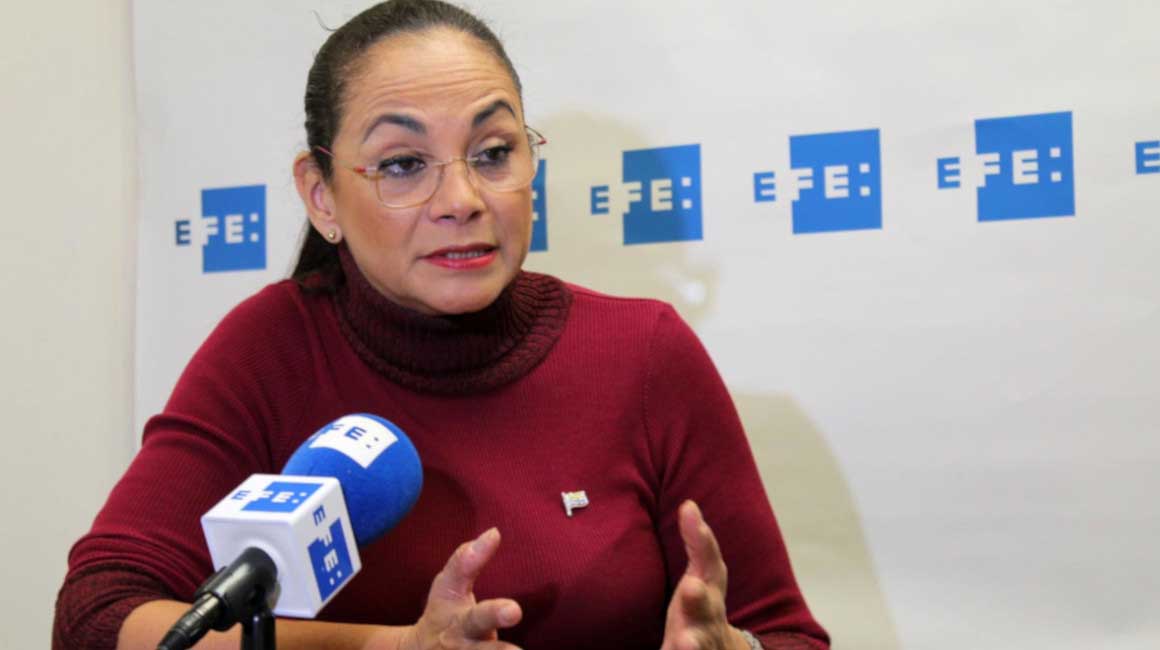Legislator Pierina Correa defends herself, affirming that some of the criticisms from the Correísmo regarding the Tourism Law were acknowledged. She rejects the label of “traitor” within her own caucus.
The decision of seven assembly members of the Citizen Revolution to vote in favor of the Tourism Law proposed by President Daniel Noboa, against the majority of the bench, leaves a sour taste among Correísta ranks.
Six of them have not provided explanations for their actions on March 22nd. Pamela Aguirre, president of the Oversight Commission, apparently hiding form her vote, even designated her alternate to participate in another session concerning the impeachment process of the former Minister of Energy, Fernando Santos Alvite.
There is also no information regarding the stance of Marcela Holguín, Xavier Jurado, Johanna Ortiz, Milton Aguas, and Henry Bósquez, who contributed to the law returning approved to the Executive with 83 endorsements.
The only assembly member willing to speak to on record was Pierina Correa, sister of former president Rafael Correa, who this time aligned herself with the Noboa government’s thesis.
If the bench intended to vote against the law, why did the seven members choose to support it?
Clarification is needed. We never explicitly stated our intention to vote against.
Did you anticipate supporting the Tourism Law?
Here’s what occurred: during the debate of the initial report in the commission, we, including myself, advocated for various points, such as preventing privatization or private investment in protected areas. Our suggestions, along with others unrelated to tourism but deemed worthy of inclusion, were accepted, even by members of our political organization.
Did the three Correísta members of the commission oppose the second report?
Yes, they did, primarily because it was presented to them only seven or ten minutes before the vote. Upon review, they argued that they hadn’t been given adequate time to examine the text. However, once the text was available, we analyzed it and confirmed that our requested amendments were implemented and many of our proposed inclusions were accepted. Therefore, there was no reason to oppose it.
As I mentioned, the law encompassed 13 different subjects, with urgent economic matters being the least among them. Nonetheless, after approval by the CAL, our task was to refine the text.
If there were no grounds for opposition, why did the majority of the RC bench vote against it?
There were some last-minute disagreements. Various colleagues had differing opinions and wished to vote against it. I always strive for consistency: if I participated constructively in the initial debate and my suggestions were incorporated, I see no reason for objection. Naturally, the law cannot cater to everyone’s preferences entirely.
Were the recommendations from other legislators who supported the law accepted?
In Johanna Ortiz’s case, as a local representative, her proposal focused on the Arts Festival. She suggested a reduction in VAT by 7 points for 10 days to promote cultural tourism. Although her proposal wasn’t included, she recognized the law’s overall benefit to tourism, not just for her province. Other proposals may be considered in the ongoing discussions on the Culture Law.
What other CR proposals were omitted?
Pamela Aguirre advocated for recognizing Imbabura as a geopark declared by UNESCO. She proposed allocating 10% of mining royalties to support environmental conservation and tourism promotion in the province. While her proposal wasn’t incorporated, she acknowledged the significant tourist potential of her province and understood that disagreement over a single aspect shouldn’t warrant complete opposition.
To put it plainly, I urged them to vote for the lesser evil. Otherwise, we risked failing to gather enough votes to oppose it, allowing the original, more detrimental text to pass unchallenged.
You’ve been labeled as traitors and “Judas.” How do you respond to that?
Since when does thinking differently mean being a traitor? Insults are easier to digest when you consider the source. I was taught that family matters should be kept private, but if some choose to air them publicly, that’s their prerogative.
Is there a division within the Correísta bench?
It’s important to remember that this isn’t the first instance of ideological differences among us. During the vote on the Rape Abortion Decriminalization Law, I was accused of being right-wing, masquerading as a leftist. Disagreements and even insults from fellow bench members aren’t unheard of.
Can you move forward from this?
I refrain from engaging in social media insults. If there are disagreements, let’s sit down over coffee and discuss them. I don’t believe this issue warrants talk of fractures within the bloc. Perhaps there’s some discomfort or a temporary distancing between certain assembly members, but that’s natural in any political environment.


0 Comments